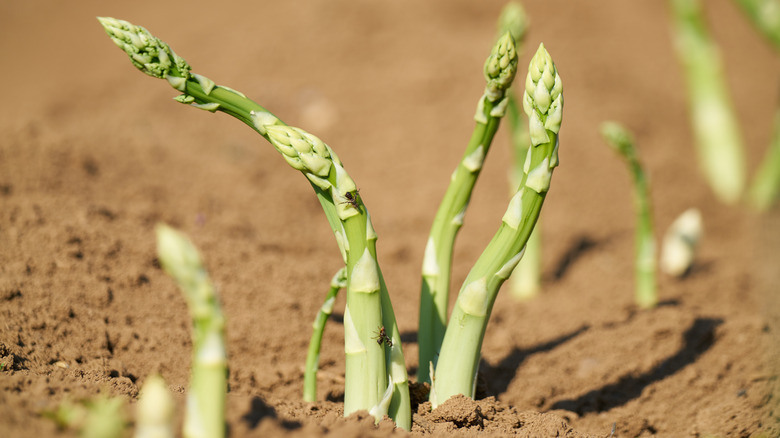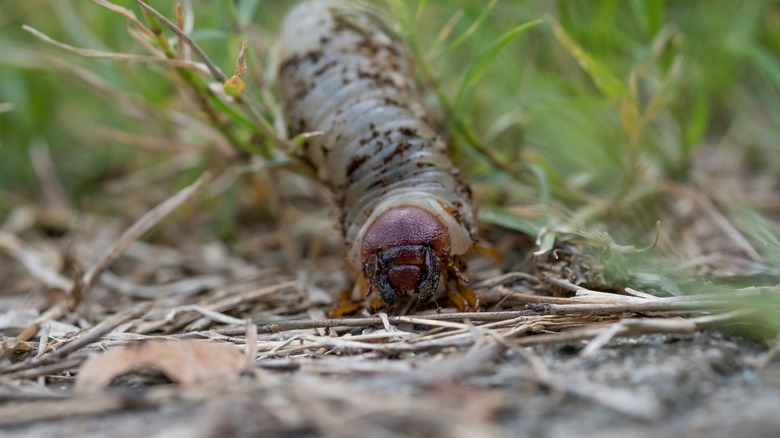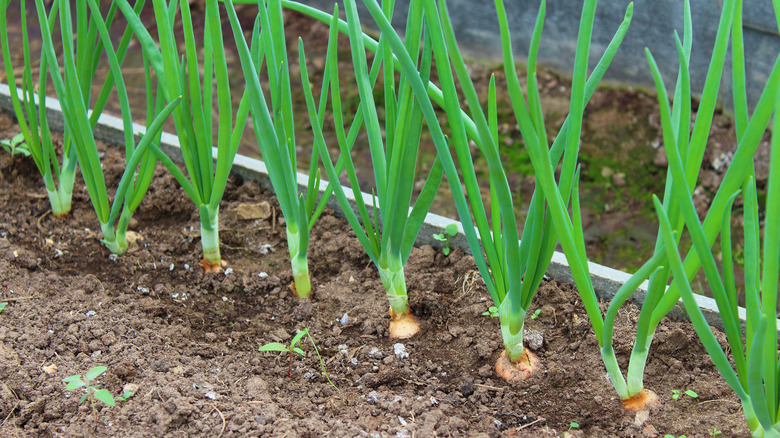Why Onions And Asparagus Don't Belong Alongside Each Other In The Garden
Onions and asparagus just don't mesh in the garden. By planting them together, you're welcoming the possibility of a number of problems like the spread of pests and diseases. Preventing pests and diseases from taking hold in the garden is your first line of defense, so it's a good idea to separate plants that the same pests enjoy, so they don't have an almost endless supply of their favorite food.
Though it may be tempting to poke a few onion seeds in your asparagus bed, instead, try to keep the planting areas as far from each other as possible. Asparagus takes a long time to grow before you can harvest it, so you can thank yourself later for not inviting issues to the area early on. If you plant the two together, you'll probably have a crop of pest and disease-ridden onions and stunted asparagus — if you even have any at all.
They share some pests and diseases
Onions and asparagus share several ailments that will easily spread between the two crops, which is a major reason you shouldn't keep these plants together. Cutworms are annoying critters that sever plants at the base, causing you to lose asparagus stalks and onion foliage, resulting in lost produce. Thrips feast on seedlings, ruining your crops when they're the most vulnerable. Since onions and asparagus can be planted at the same time, if you were to have them both in the same area at the seedling stage, you'd be providing thrips with a large buffet and a corresponding population surge, and the tender seedlings likely wouldn't survive the feeding frenzy.
In addition, several diseases can spread between the two plants, such as rust and fusarium fungal diseases, like crown rot. These diseases are spread by water, pests, and wind, making it very easy for both crops to infect each other. Since fungal diseases can't be cured, it's crucial that you take every step to prevent their spread, starting with not planting onions and asparagus together.
Onions don't play nice
Onions can negatively affect asparagus growth because they are allelopathic. An allelopathic plant inhibits its neighbors' growth by releasing chemicals naturally developed in the plant into the soil. You could say onions make sure they don't have to compete with their neighbors for nutrients, by preventing them from growing in the first place.
Onions have a number of ways to sabotage the growth of other plants. They've been found to inhibit seed germination, rooting, cause stunted seedlings, and even affect the nucleic acid in neighboring plants, meaning the damage goes as deep as the DNA. Since asparagus is a perennial plant that will come back each year, it's important to grow them with plants that won't hurt them, but rather improve their overall growth.
You may also find that caring for asparagus and onions in the same space is a little annoying. Asparagus plants can last for up to 30 years, so they're in it for the long haul. Meanwhile, onions will only be in the ground for less than a year. You risk disturbing the soil and asparagus by consistently planting and harvesting onions where asparagus wants to settle.


